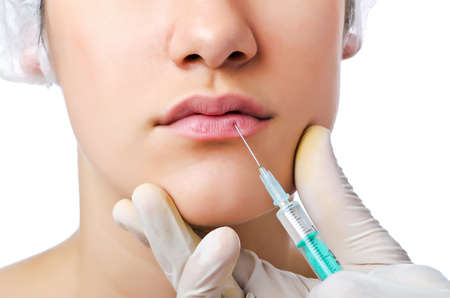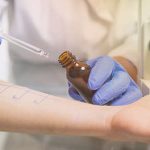1. Understanding the Skin Microbiome
When we think about bacteria, we often associate them with infections or illness. But not all bacteria are bad—some are actually essential for keeping our skin healthy. The skin microbiome refers to the trillions of microorganisms, including bacteria, fungi, and viruses, that live on our skin. These tiny organisms play a big role in protecting our skin from harmful invaders and supporting its natural functions.
A balanced skin microbiome helps maintain the skin’s barrier, controls inflammation, and keeps moisture levels stable. However, when this delicate balance is disrupted—through harsh skincare products, stress, diet, or environmental factors—it can lead to skin issues like acne and redness.
How an Imbalanced Microbiome Affects Your Skin
When the “good” bacteria on your skin decrease and “bad” bacteria take over, it can trigger an immune response. This may result in clogged pores, increased oil production, inflammation, and ultimately breakouts or irritated skin.
Main Contributors to Microbiome Imbalance
| Factor | Impact on Skin |
|---|---|
| Harsh cleansers or over-washing | Strips away beneficial bacteria and oils |
| Poor diet (high sugar/fat) | Affects gut-skin connection and promotes inflammation |
| Stress | Lowers immune defenses and alters microbiome diversity |
| Certain medications (like antibiotics) | Kills both harmful and helpful bacteria |
| Environmental pollution | Irritates skin and affects microbial balance |
The Link Between Bacteria, Acne & Redness
Certain bacteria like Cutibacterium acnes, which naturally live on the skin, can become problematic if they grow out of control. When combined with excess oil production and clogged pores, they can lead to inflammation and acne. Similarly, people with sensitive or rosacea-prone skin may experience increased redness due to shifts in their microbiome that trigger inflammatory responses.
This is where probiotics come into play—they may help restore balance to the microbiome by increasing beneficial bacteria, reducing inflammation, and improving overall skin health. In the next section, we’ll look at how probiotics actually work when applied topically or taken as supplements.
2. How Probiotics Benefit the Skin
Probiotics, often known as “good bacteria,” are live microorganisms that can offer health benefits when used properly — not just for your gut, but also for your skin. In recent years, more people in the U.S. have turned to probiotics in skincare products and supplements to help manage acne, reduce redness, and promote overall skin health. But how exactly do they work?
Reducing Inflammation
One of the biggest ways probiotics help your skin is by calming inflammation. Many skin issues like acne and rosacea are linked to inflammatory responses in the body. Probiotics help regulate these responses by interacting with your immune system and reducing overactive inflammation. This can lead to fewer breakouts and less visible redness.
Supporting the Skin Barrier
Your skin has a natural barrier that protects it from harmful elements like pollution, UV rays, and bacteria. When this barrier is weakened, it can lead to dryness, irritation, or breakouts. Probiotics support the production of ceramides—natural lipids that strengthen your skin’s protective layer. A stronger barrier means healthier-looking skin thats better at holding in moisture and keeping irritants out.
Fighting Harmful Bacteria
The skin is home to a mix of good and bad bacteria. When theres an imbalance (more bad than good), it can trigger acne or other skin problems. Probiotics help restore balance by encouraging the growth of beneficial bacteria and crowding out harmful ones like Cutibacterium acnes, a common cause of acne.
Key Benefits of Probiotics for Skin
| Benefit | How It Helps Your Skin |
|---|---|
| Reduces Inflammation | Calms irritation and helps minimize redness from acne or rosacea |
| Strengthens Skin Barrier | Improves moisture retention and protects against external damage |
| Balances Skin Microbiome | Promotes healthy bacteria and reduces breakout-causing microbes |
| Soothes Sensitive Skin | Helps reduce stinging, burning, or flare-ups in reactive skin types |
A Natural Approach to Clearer Skin
If youre dealing with acne or redness, adding probiotics to your skincare routine might be a gentle yet effective option. Whether through creams, cleansers, or supplements, these helpful microbes are gaining attention for their ability to support clearer, calmer skin from the inside out.
![]()
3. Probiotics and Acne: What the Research Says
Acne is one of the most common skin concerns in the United States, affecting both teens and adults. While traditional treatments like topical creams, antibiotics, and retinoids are widely used, interest in more natural solutions—like probiotics—is growing. But can probiotics really help with acne? Let’s take a look at what scientific studies say.
How Probiotics May Help with Acne
Probiotics are live bacteria that offer health benefits when consumed or applied topically. When it comes to acne, researchers believe probiotics may work in several ways:
- Balancing gut microbiome: A healthy gut can reduce systemic inflammation, which may help prevent acne flare-ups.
- Fighting harmful skin bacteria: Certain probiotic strains can compete with acne-causing bacteria like C. acnes.
- Reducing inflammation: Probiotics can calm the immune response that leads to redness and swelling associated with acne.
What Does the Research Say?
Several small studies have examined the impact of oral and topical probiotics on acne symptoms. Heres a quick breakdown of some key findings:
| Study | Type of Probiotic | Method | Results |
|---|---|---|---|
| Draelos et al., 2010 | Lactobacillus plantarum | Topical application | Reduced acne lesion count and improved skin barrier function |
| Kang et al., 2009 | Lactobacillus acidophilus + Bifidobacterium bifidum | Oral supplement (daily for 12 weeks) | Significant decrease in inflammatory acne lesions compared to control group |
| Jung et al., 2013 | Lactobacillus-fermented dairy beverage | Oral intake over 8 weeks | Improved skin hydration and reduced acne severity |
A Viable Alternative to Traditional Treatments?
While the research is promising, it’s still early. Most studies have small sample sizes, and more large-scale clinical trials are needed before probiotics can be considered a stand-alone treatment for acne. However, they do show potential as a complementary option—especially for people looking for gentler or more natural skincare solutions.
When to Consider Probiotics for Acne
If youre dealing with mild to moderate acne and want to avoid harsh ingredients like benzoyl peroxide or antibiotics, adding probiotics—either through your diet or skincare—might be worth trying. Look for products containing clinically studied strains like Lactobacillus plantarum or Lactobacillus acidophilus.
4. Can Probiotics Help Reduce Redness and Sensitivity?
Many people with sensitive skin struggle with redness, irritation, or chronic conditions like rosacea and eczema. These issues often stem from an imbalanced skin barrier or inflammation. This is where probiotics may offer some relief.
How Probiotics Support Sensitive Skin
Probiotics are beneficial bacteria that help balance the skin’s microbiome—the community of microorganisms living on your skin. When this microbiome is disrupted, it can lead to increased sensitivity, flare-ups, and visible redness. By introducing good bacteria, probiotics can help restore harmony and strengthen the skins natural defenses.
Main Benefits of Probiotics for Sensitive Skin
| Benefit | How It Helps |
|---|---|
| Reduces Inflammation | Probiotics can calm inflammatory responses that lead to redness and swelling. |
| Strengthens Skin Barrier | They support the production of ceramides and other lipids that protect against irritants. |
| Balances Microbiome | A healthy balance of bacteria helps prevent flare-ups and discomfort. |
Conditions That May Benefit from Probiotic Skincare
Certain skin concerns are more likely to improve with probiotic treatments. Here are a few examples:
Rosacea
This chronic condition causes facial redness, bumps, and sensitivity. Probiotic creams and serums may help reduce flare-ups by calming inflammation and balancing bacteria on the skin.
Eczema (Atopic Dermatitis)
Eczema-prone skin often has a weakened barrier and an overactive immune response. Probiotics may strengthen the skin’s defense system and reduce itching or irritation.
Sensitive Skin in General
If your skin reacts easily to new products or changes in weather, probiotics might help soothe and protect it from environmental stressors.
Using Probiotics in Your Skincare Routine
You can find probiotics in various forms like cleansers, moisturizers, masks, or even supplements. Look for terms like “lactobacillus,” “bifidobacterium,” or “fermented ingredients” on product labels. Consistency is key—regular use helps maintain results over time.
5. How to Incorporate Probiotics into Your Skincare Routine
Adding probiotics to your skincare routine doesn’t have to be complicated. Whether you’re dealing with acne, redness, or just want healthier skin, combining topical products and smart dietary choices can help support your skin’s natural microbiome.
Choose the Right Probiotic Skincare Products
Look for skincare products that contain live probiotic strains or lysates (which are fermented ingredients that offer similar benefits). These are often found in:
- Cleansers
- Moisturizers
- Serums
- Masks
Make sure the label mentions specific probiotic ingredients like Lactobacillus, Bifidobacterium, or ferment filtrates such as Saccharomyces Ferment. These ingredients can help calm inflammation and reinforce your skin barrier.
Best Times to Use Probiotic Products
For maximum benefit, use probiotic-infused skincare during your nighttime routine when your skin is in repair mode. Here’s a simple step-by-step guide:
- Cleanse with a gentle probiotic cleanser to remove dirt without stripping the skin.
- Apply a serum that contains probiotics or prebiotics to feed healthy bacteria.
- Seal it in with a moisturizer that supports the skin barrier and contains probiotic-derived ingredients.
Support Your Skin from the Inside Out
Your diet plays a big role in maintaining a balanced skin microbiome. Including probiotic-rich foods can enhance the effects of topical treatments. Here’s a quick comparison of common probiotic foods and what they offer:
| Food | Probiotic Benefit |
|---|---|
| Greek Yogurt (with live cultures) | Supports gut health, which may reduce acne flare-ups |
| Kefir | Aids digestion and immune response, indirectly calming skin inflammation |
| Sauerkraut/Kimchi | Packed with natural probiotics and antioxidants for overall skin health |
| Kombucha | Fermented tea rich in probiotics and polyphenols that may support clearer skin |
Tip:
Avoid high-sugar and processed foods, which can disrupt your gut and skin microbiome. Instead, focus on whole foods and fiber-rich fruits and veggies that nourish good bacteria.
Be Consistent and Patient
Incorporating probiotics into your skincare isn’t an overnight fix. It takes consistency—usually 4 to 8 weeks—to start seeing noticeable improvements in acne or redness. Keep track of how your skin responds and adjust your routine as needed.

